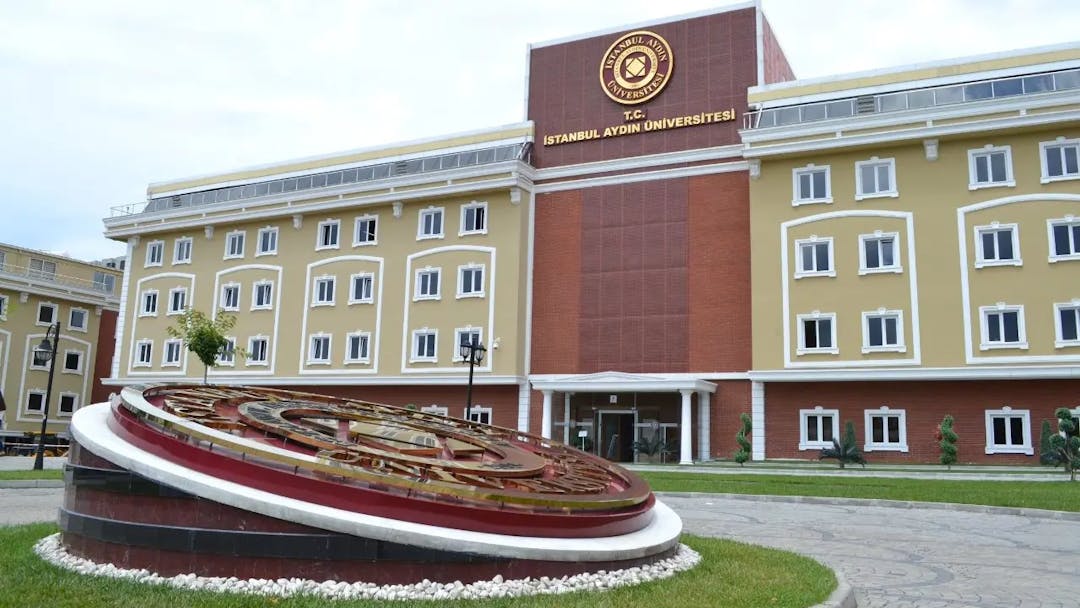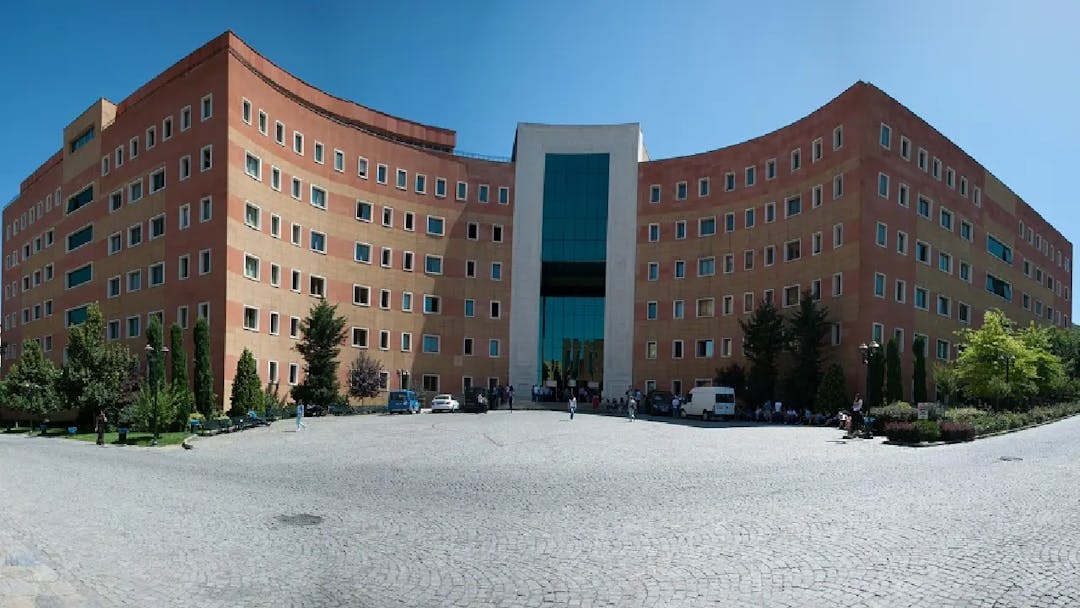About Major Food Engineering In Turkey
About Major Food Engineering In Turkey
The Requirement Food Engineering In Turkey
Frequent Question Food Engineering In Turkey
Apply Now!
University Available Food Engineering In Turkey
About Major Food Engineering In Turkey

An overview of Food Engineering:
Food engineering is a branch of engineering that focuses on applying engineering principles and concepts to the field of food. Food engineering aims to apply engineering principles to improve the processes of production, manufacturing, packaging, storage and distribution of food products in safe and effective ways and to ensure the quality and safety of food products. The scope of food engineering includes many areas such as designing food factories, developing new technologies and processes in the food industry, ensuring food safety and quality, managing food supply chains, developing new food products, as well as research and innovation in the field of food. Food engineering is an essential part of efforts to maintain food safety and provide food in sufficient quantities and high quality to the population.
- Food Science: Understanding the physical, chemical and microbiological properties of foodstuffs and the impact of various factors on their quality and safety.
- Food Technology: The use of modern processes and technologies in food manufacturing and processing such as heating, cooling, drying, packing, sterilization, freezing, and nutritional analysis to enhance the quality of food products and extend their shelf life.
- Design and production engineering: designing food equipment and factories in a way that ensures food safety, quality, and production efficiency, and applying manufacturing, packaging, and storage processes that ensure the safety and quality of food products.
- Quality and food safety management: applying the principles of total quality management, risk analysis, compliance with food standards and legislation, food safety management systems, and applying food safety practices to prevent contamination and ensure the safety of food products.
- Food Product Development: Develop and innovate new food products based on the needs and trends of the market and consumers based on an understanding of food science and modern technologies.
The history of food engineering dates back to the late nineteenth century, when engineering applications began in the food industry. Food engineering also became a branch of engineering in the early twentieth century, where the focus was on improving food production and processing techniques. The interest of the scientific and industrial community has increased due to the challenges in producing food in sufficient quantities and of high quality. In the twenty-first century, modern technology has witnessed remarkable developments in manufacturing, packaging, and food safety processes, which has led to major developments in the field of food engineering, and its positive effects on the safety and quality of food globally.
The food engineering major relies on concepts and skills in engineering and food sciences, in addition to a deep understanding of food sciences and food processing techniques. This specialization aims to meet the needs of the food industry and ensure the sustainable and efficient production of safe and high-quality food products for the masses.
Why study Food Engineering in Turkey?
If you are planning to study food engineering, Turkey will be one of the best educational opportunities for you, given the progress in Turkish research in this sector. Turkish universities are keen on the quality of the educational curriculum to comply with international standards. Universities also exploit all their capabilities to serve the requirements of the food engineering major to ensure students excel in their educational and professional lives.
Here are some reasons why students may choose to study in Turkey for this major:
- Prestigious universities: Turkey includes many well-known and internationally accredited universities and leading research centers in the specialty of food engineering, where private universities invest in modern infrastructure and advanced equipment to support research and development in this specialty.
- Highly skilled faculty: with the ability to research and design new food engineering applications, methods and models, as well as analyze the latest updates in food engineering systems development.
- Cultural and social diversity: Turkey is a country that combines tradition and modernity, East and West, and a diverse cultural experience is available among international students studying in Turkey.
- Research and innovation environment: Dynamic programs adapted to recent changes and developments in the food engineering sector and technological research. This creates a suitable environment for studying food engineering and innovation in this discipline.
- Affordable cost of living: Compared to some other countries, Turkey offers a reasonable cost of living, making it an attractive destination for international students.
Overall, Turkey offers an exciting and attractive environment to study in the field of food engineering, and is increasingly popular among international students researching food engineering.
Skills needed to study Food Engineering?
To study food engineering and succeed in this major, it requires possessing a set of technical and personal skills. Here are some skills needed:
- The ability to understand engineering basics and concepts related to various engineering sciences.
- The ability to understand the laws of physics, chemistry, and life sciences to apply them in the manufacturing and packaging of food products.
- The ability to deal with calculations and statistics related to the design and management of engineering processes.
- The ability to develop new and innovative solutions to improve food manufacturing processes.
These skills contribute to qualifying students and professionals to effectively cope with the challenges and opportunities of the food engineering field.
The average annual salary for beginners to a major is Food Engineering $65,000
The Requirement Food Engineering In Turkey
Passport
Personal photo
Toefl
High school diploma
High school transcript
Frequent Question Food Engineering In Turkey
What is Food Engineering?
Food engineering is a branch of engineering that focuses on applying engineering principles and techniques to the production and manufacture of food products in safe and efficient ways. These areas include designing food plants, ensuring food safety, developing new products and improving the quality and safety of food products.
What is the importance of Food Engineering?
The importance of food engineering lies in achieving food safety and quality, and improving its production and distribution processes to meet the needs of consumers. Food engineering contributes to increasing productivity, reducing waste, and developing new and innovative food products, which contributes to enhancing public health and food sustainability.
What is Food Engineering aimed at?
Food engineering aims to provide food in sufficient quantities and high quality, ensure the safety of food products and the effectiveness of their manufacturing and distribution processes, and meet the needs of the market and consumers in a comprehensive and sustainable manner.
What is the history of Food Engineering?
The history of food engineering dates back to a long period of experimentation and development. These are the most prominent stations in the history of food engineering:
- Antiquity: Since ancient times, there have been food preparation and storage techniques practiced by ancient civilizations, such as drying, fermenting, and preserving food.
- Medieval and Early Modern Periods: The medieval and early modern period witnessed the development of food manufacturing processes and the application of new technologies.
- The nineteenth century: The nineteenth century witnessed progress in the food industry with the emergence of modern techniques for manufacturing and preserving food, such as sterilization, packaging, and refrigeration.
- The twentieth century and beyond: In the twentieth century, food engineering began as an independent discipline taught in universities and higher institutes. Since then, this field has witnessed significant development with the advancement of technologies and knowledge in food science and engineering. The technologies and processes used in food manufacturing, packaging and storage have also increased, leading to improved quality and safety of food products.
- The modern era: Food engineering has witnessed continuous developments thanks to modern technologies such as genetic engineering, advanced heat treatment techniques, and the application of artificial intelligence in the field of the food industry. The industry is moving towards sustainability and developing new food products that meet changing market needs.
In summary, the history of food engineering reflects the gradual development of food science and engineering, and how it has been applied in food production and processing throughout the ages, with an increasing emphasis on food safety, quality and sustainability.
What do Food Engineering graduates do?
A food engineering graduate has a wide range of career opportunities in the food industry and allied sectors. Among the jobs a food engineering graduate can work in:
- Food production engineer: works to develop and improve food production processes, operate equipment, and ensure product quality.
- Quality and food safety engineer: works on implementing and monitoring quality and food safety management systems in food factories and facilities.
- Food Packaging Engineer: Designs and develops suitable containers and packaging for food products, paying attention to material quality and safety.
- Manufacturing and Operations Engineer: Manages manufacturing and operating processes in food factories to ensure production efficiency and product safety.
- Development, Research and Applications Engineer: works on developing new products and innovations in the food field and updating technologies used in the food industry.
- Food Supply Chain Engineer: Manages the supply chain operations of raw materials and food ingredients from farms to factories and then to markets.
- Environmental and Sustainability Engineer: works to provide sustainable environmental solutions in food production processes and waste and resource management.
A food engineering graduate works in multiple fields to improve food production processes, ensure its quality and safety, and meet the needs of the market and consumers.
University Available Food Engineering In Turkey

Istanbul Aydin
Language
Turkish
Tuition fees (Schedule)
$4000


Yeditepe
Language
English
Tuition fees (Schedule)
$0

| University | Language | Tuition fees (Schedule) |
|---|---|---|
| Istanbul Aydin | Turkish | $4,000 |
| Yeditepe | English | - |



